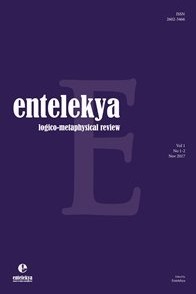Religion, Pluralism, and the Problem of Living Together in the Light of Kymlicka’s Thoughts: An Overlapping Consensus or A Modus Vivendi?
Religion, Pluralism, and the Problem of Living Together in the Light of Kymlicka’s Thoughts: An Overlapping Consensus or A Modus Vivendi?
Today’s societies face the minorities that want recognition and respect for cultural differences. Kymlicka names it the challenge of multiculturalism. It is considered that identity and recognition problems have recently come to the fore because of a transformation in the perception of subject, truth, reason caused by postmodernism. Kymlicka claims that even if it is more difficult to live together today, it is not because of the so-called post-truth age. In his opinion, we have never reached absolute common grounds before, either. So, it is not true that we cannot get common grounds by we do not believe metaphysical truths anymore. He already believes that a sense of justice does not count on the metaphysical truths, but it can be based on social identities and a sense of belonging. So, he thinks that an overlapping consensus is possible. However, I will defend a different perspective about pluralism and living together. I think that modus vivendi is an undeniable universal fact. For this reason, an overlapping consensus as a model of living together can only be possible domestically at the expense of a global modus vivendi.
Keywords:
Modernism, postmodernism, living together, modus vivendi overlapping consensus,
___
- Abbey, Ruth. “Closer Kinships: Rortyan Resources for Animal Rights.” Contemporary Political Theory 16, no. 1 (2017): 1-18.
- Anderson, Benedict. Hayali Cemaatler. Tr. trans. İskender Savaşır. İstanbul: Metis Yayınları, 2007.
- Bauman, Zygmunt. Etiğin Tüketiciler Dünyasında Bir Şansı Var mı? Tr. trans. Funda Çoban and İnci Katırcı. İstanbul: De Ki Yayınları, 2010.
- Baumann, Gerd. Çokkültürcülük Bilmecesi: Ulusal, Etnik ve Dinsel Kimlikleri Yeniden Düşünmek. Tr. trans. Işıl Demirakın. Ankara: Dost Kitabevi, 2006.
- Calhoun, Craig. “Kimlik ve Tanınma Politikası.” Kimlik Politikaları. Ed. Fırat Mollaer. Ankara: Doğu Batı Yayınları, 2014.
- Eberle, Cristopher J. Religious Convictions in Liberal Politics. Cambridge: Cambridge University Press, 2002.
- Erincik, Selçuk. “Kamusal Aklın Sınırları İçinde Din (John Rawls’un Düşünceleri Bağlamında).” Ankara Üniversitesi İlahiyat Fakültesi Dergisi 51, no. 2 (2010): 291-314.
- Hobbes, Thomas. Leviathan. Tr. trans. Semih Lim. İstanbul: Yapı Kredi Yayınları, 1995.
- Kymlicka, Will. “The Three Lives of Multiculturalism.” Revisiting Multiculturalism in Canada. Eds. Shibao Guo and Lloyd Wong. Rotterdam: Sense Publishers, 2015.
- Kymlicka, Will. Çokkültürlü Yurttaşlık: Azınlık Haklarının Liberal Teorisi. Tr. Trans. Abdullah Yılmaz. İstanbul: Ayrıntı Yayınları, 1998.
- Modood, Tariq. Çokkültürcülük: Bir Yurttaşlık Tasarımı. Tr. trans. İsmail Yılmaz. Ankara: Phoenix Yayınevi, 2014.
- Parekh, Bikhu. Çokkültürlülüğü Yeniden Düşünmek: Kültürel Çeşitlilik ve Siyasal Teori. Tr. trans. Bilge Tanrıseven. Ankara: Phoenix Yayınevi, 2002.
- Pogge, Thomas. “Priorities of Global Justice.” Metaphilosophy 32, no. 1-2 (2001): 6-24.
- Pogge, Thomas. “Real World Justice.” The Journal of Ethics 9, no. 1 (2005), 29-53.
- Rawls, John. Justice as Fairness: A Restatement. Ed. Erin Kelly. Cambridge: The Belknap Press of Harvard University, 2003.
- Rawls, John. Political Liberalism. New York: Columbia University Press, 1993.
- Taylor, Charles. “Tanınma Politikası.” Tr. trans. Yurdanur Salman. Çokkültürlülük; Tanınma Politikası. Ed. Amy Gutman. İstanbul: Yapı Kredi Yayınları, 2005.
- Taylor, Charles. Benliğin Kaynakları: Modern Kimliğin İnşası. Tr. trans. Selma A. Baş and Bilal Baş. İstanbul: Küre Yayınları, 2012.
- Taylor, Charles. Seküler Çağ. Tr. trans. Dost Körpe. İstanbul: Türkiye İş Bankası Kültür Yayınları, 2014.
- Wahl, Asbjorn. Refah Devletinin Yükselişi ve Düşüşü. Tr. trans. Haldun Ünal and Baran Öztürk. İstanbul: H2O Kitap, 2015.
- Başlangıç: 2017
- Yayıncı: İlyas ALTUNER
